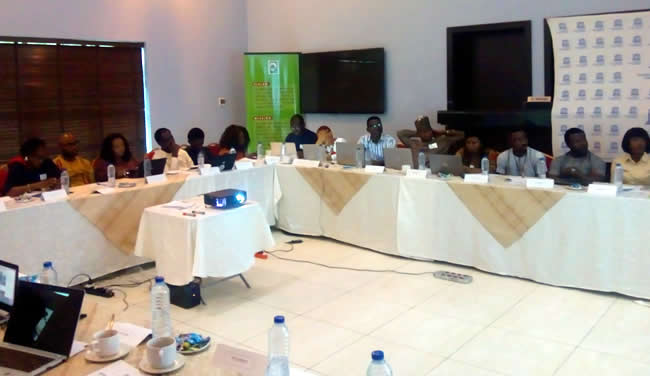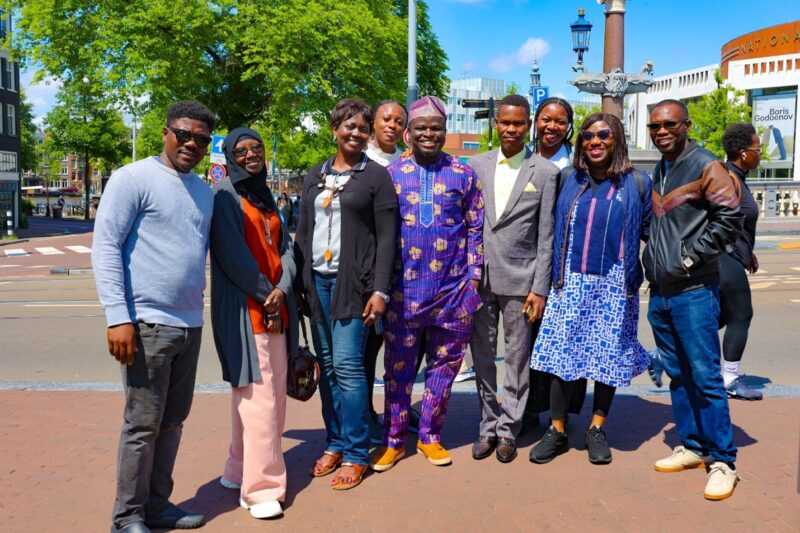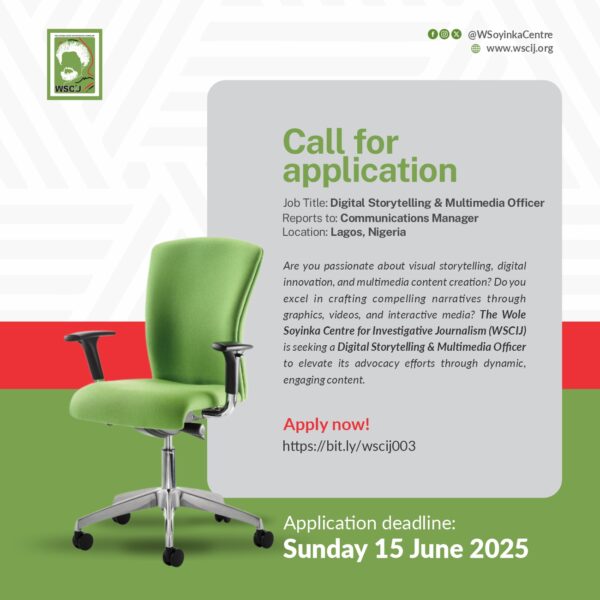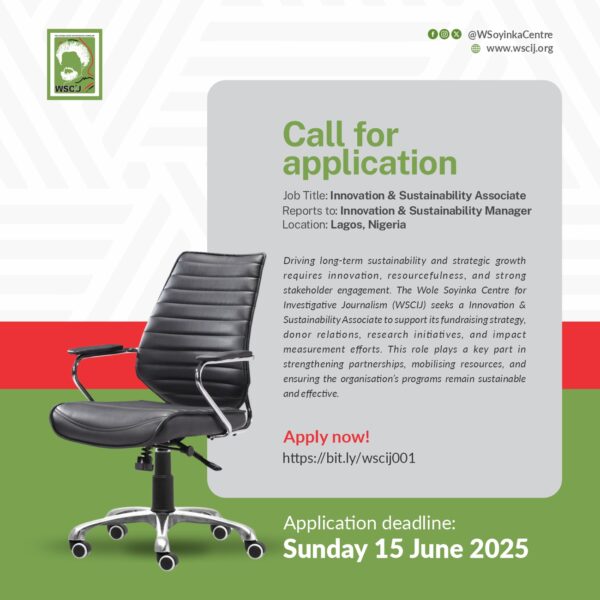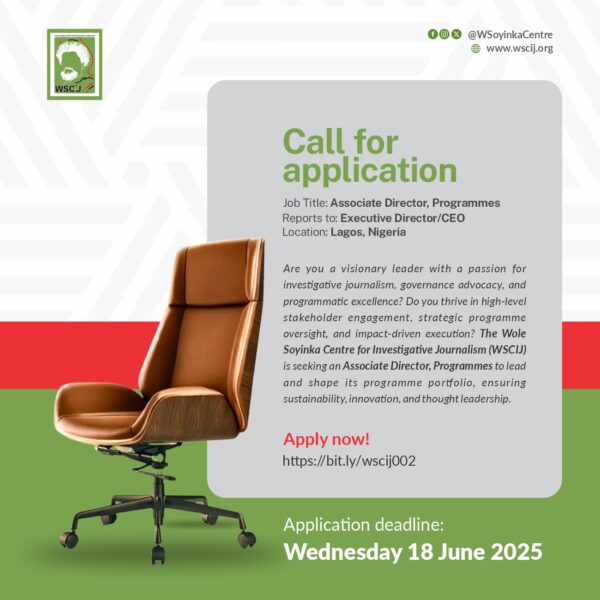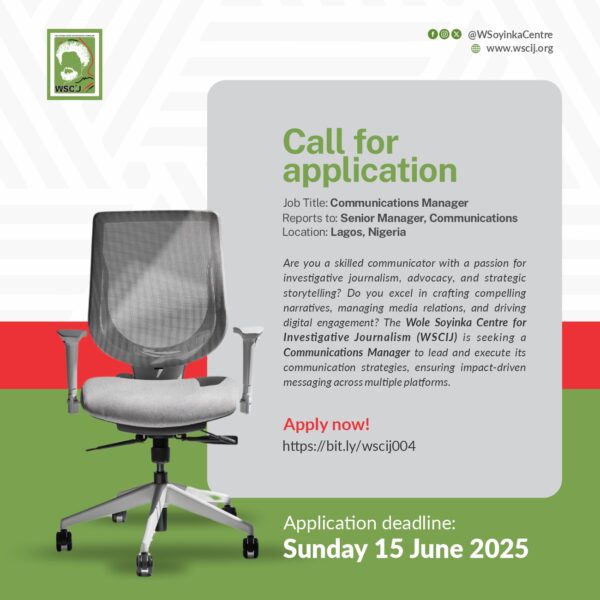It was both an impactful and engaging session as 22 journalists were enlightened on the nuances of migration reporting at the Masterclass on Migration Reporting. The two days training was commissioned by the United Nations Educational, Scientific and Cultural Organisation (UNESCO) as part of a Media Engagement Programme on Migration Reporting implemented by the Wole Soyinka Centre for Investigative Journalism (WSCIJ) to empower young people in Africa through media and communication on irregular migration.
The meeting which held at the Amber Residence, Lagos, on the 5th and 6th September 2019, was aimed at ensuring that the most vulnerable people, particularly the youths, have access to relevant information and knowledge of the dangers and the benefits of migration. The immersion training also provided relevant techniques to at build the capacities of journalists for investigating and better reporting migration issues in West Africa and to Europe.
Shola Okpodu, an investigative journalist and media expert with UNESCO stated that the programme is an Italian Government funded Regional Project focused at empowering the youth through the media and communication on irregular migration. The programme is part of UNESCO’s four thematic areas which focuses on communication, sciences, information and as well culture;
Adeolu Adekola, Senior Programmes officer of the WSCIJ, highlighted the infographics on migration and its reportage in Nigeria media. In his presentation, he maintained that the WSCIJ as a centre for investigative journalism is passionate about sustainable and ethical media reportage and does various media monitoring across various topics and subject matters.
Based on the media monitoring conducted by the WSCIJ towards implementing the project, a total of 275 migration stories were published across ten media outlets in June and July 2019 which cuts across various migration story issues from conflict/security, to human trafficking, illegal migration, to policies/law, business/economy, education and general beats on migration. Consequently, this revealed that migration is not a widely covered issue in the Nigerian media, and most stories published during the two-month period were short news with few exclusive and investigative stories.
He therefore recommended that more stories that look at issues with narrative details should be encouraged by media managers, and that journalists should do more than routine reporting of migration issues, among others.
The Don herself, Dr Franca Attoh, an Associate Professor from the University of Lagos, engaged the participants in a stimulating journey through the nuances of migration with its many controversial faces – migration and its discontents, underdevelopment, the migration drivers, regional dynamics, and essentially, the African dynamics. She mentioned, “the truth of the matter is that migration is an umbrella concept, and within that continuum you have issues of human trafficking” she also added, “before somebody set out to migrate, there must be something that impels that process, then of course the issue of organ trafficking which is something that is new but is an organised crime and it falls within the context of criminality”
While expatiating on some migration laws including the international Migration Laws (IML), a legal framework that govern migration, she said, “Since migration is a phenomenon that we cannot wish away, no matter what we do, but rather what we’ll be thinking of is how to revisit, so there must be frameworks to protect those who are taking the route”. She further cited other instruments that protect against the exploitation of migrant workers and forced labour or slavery like the ILO Migrant Workers (Supplementary Provisions) Convention, 1975; International Covenant on Civil and Political Rights among others. She also touched on safety tips for reporters and practical ways the participants can protect themselves when covering migration stories.
Dr Theophilus Abbah, Director of Daily Trust Foundation, during his session took the participants through various migration story ideas they could pitch and begin to report going forward. Story ideas of migrants in India, labour and employment, investments by Nigerian immigrants, crimes, human rights/discrimination, to foreign aids, economic brain drain and brain waste, rural-urban drift, IDPs and refugees, and strength and weaknesses of laws related to migration. He challenged them to put on their thinking caps as there are vistas of opportunities for investigation on migration reportage. Considering the countries where Nigerians go using the statistics from NAPTIP, it was discovered that Sweden was not a favoured country in terms of migrant movement, this he pointed as an opportunity for a big story, in querying why it is so. He also suggested collaboration as a means of breaking big stories stating the need for collaboration with other journalists outside Nigeria.
During the training, some participants with experience in the beat shared tips from the field and what they learnt while covering migration. The training ended with participants pitching different story idea while mapping out the story scope and ramifications, sources, and allied matters under the guidance of the resource persons.

